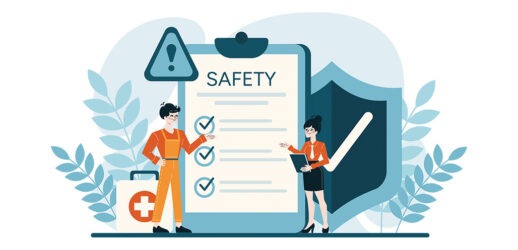These days, continuing education isn’t optional for meeting and event organizers. It’s a necessity to keep up with changes in almost every area of planning.
Despite being in the meetings and events industry more than 20 years and holding the Certified Meeting Professional (CMP) designation, Paula Rigling and Tonya Almond routinely seek out new knowledge and perspectives about how to organize events more effectively and efficiently. In fact, they feel so strongly about the role continuing education plays for planners that they lead peer-learning programs within their regional chapters of Meeting Professional International (MPI) and Professional Convention Management Association (PCMA), respectively.
The reason? “Meetings are an incredible investment of money and time, and a planner’s risks are high in terms of money, liability and safety,” says Rigling, president of Meeting Planning Professionals, an independent firm in Round Rock, Texas. “Continuing education is about professional growth and your long-term career—but it is just as much about showing your boss the value you can provide in tangible ways, and bringing ROI to your organization,” adds Almond, vice president of meetings and continuing education for American Academy of Pediatric Dentistry.
Novice and experienced planners alike should take action on a regular basis to learn more about the various aspects of their work—some of which change constantly.
Top Issues Planners Should Follow
Almond finds that colleagues want to learn more about mitigating risk and understanding legal implications in certain areas.
“There is so much interest in cybersecurity: How do you protect attendee and organizational data from people who would hack your office networks, or the networks you use when your meeting is onsite? And what types of insurance do you need to cover those types of breaches?” Almond asks. A host organization’s general liability policy often does not cover financial damage from such incidents.
Rigling also sees strong interest in that topic, as well as how to ensure the physical security of attendees. “Planners have to talk to facilities about their security procedures, which means knowing the right questions to ask,” she notes.
Many planners are seeking new ideas on program design that keep attendees engaged and off their personal electronic devices as much as possible. Another topic that’s constantly evolving is social media strategies to enhance the effectiveness of in-person events. Even an industry veteran such as Rigling recently learned new skills during a convention and visitors bureau fam trip that offered an educational session for 75 planners to discover how to use Snapchat for building engagement throughout a meeting.
Many Avenues for Planners
The fam trip Rigling attended demonstrates that continuing education doesn’t have to come exclusively through formal classes offered by associations designed to earn a planner an industry designation. Of course, going that route would give a planner leverage for a promotion and a pay raise within their organization. But less formal avenues that provide useful learning are abundant these days—and some are actually eligible for continuing-education credits.
Industry suppliers and third-party firms are providing education for their planner clients. Besides convention bureaus, there are many hotel brands that incorporate learning sessions into their fam-trip itineraries. And meetings-related software firms, audiovisual companies, speakers’ bureaus, team-building providers and others have increased the number of white papers, podcasts, webinars and in-person events they offer for planners’ benefit.
“Some of the blogs and other content on supplier websites are just case studies, but much of it is definitely worth looking at,” Almond says. “Especially on the topic of event design strategies, some of the case studies in the Freeman company’s blog and in the Experient blog are good ones.”
Almond follows certain brands on LinkedIn so she can access new content straight from her news feed. There are also several robust meetings-related online chat forums that allow a planner to crowd-source the intelligence of many colleagues at once.
“The Google group known as MiForum is a favorite of mine,” Rigling says. “People post questions and get advice and answers from other planners, as well as suppliers.”
Meeting & Event Professionals is another Google-plus group popular among meeting planners. Almond is part of PCMA’s Catalyst online forum, where she has seen useful peer-to-peer content regarding how to craft effective contract clauses on attrition, liability and other matters.
Can’t Beat Face-to-Face Learning
Despite today’s digital educational options, in-person events are where the most learning can be gained in a short time. “If you can commit to an occasional breakfast, lunch or reception, it helps so much because you can not only ask questions, but also pick up on things you’ve never even thought about,” Almond says.
At a meetings-industry event held in the Austin, Texas, area, a panelist mentioned that she avoided paying thousands of dollars for live-streaming a meeting to other locations simply by putting each session out on Periscope, Rigling recalls. “So now we will try to use Periscope for our chapter meetings to reach members who can’t come in person,” she says.
From industry-focused magazines and supplier websites to online chat forums, webinars and podcasts, opportunities for continued growth and learning abound.
“We offer variety to our attendees so that they learn better,” Almond says. “Why wouldn’t we do that for ourselves, too?”




